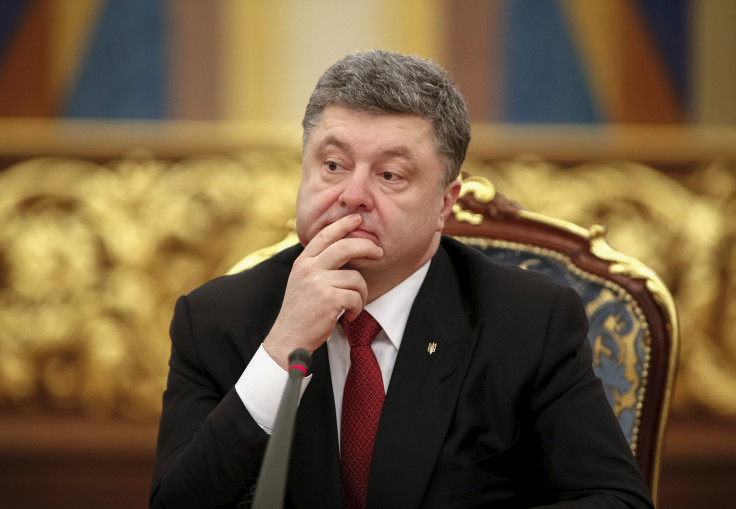Nearly 60% Ukrainians Unhappy With Petro Poroshenko: Poll

Almost two-thirds of Ukrainians were unhappy with the performance of President Petro Poroshenko, who came to power last June, after the ouster of former President Viktor Yanukovych, according to a recent survey conducted by Kiev-based Research and Branding Group.
The survey, which was carried out in early March, showed that 58 percent of those polled disapproved of Poroshenko's job performance, while only one-third favored him.
The poll was conducted across all of Ukraine except the disputed Crimea, Donetsk and Luhansk regions, and interviewed a total of 1,501 adults. The results also showed that Prime Minister Arseniy Yatsenyuk was even less popular as only 24 percent of the respondents supported him.
Ukraine’s political culture is rife with corruption, with the country ranking 142 out of 175 countries in Transparency International’s Corruption Perceptions Index. The head of an anti-graft body founded last year quit in frustration, claiming there was no political will to conduct the necessary “full-scale war” on corruption. The International Monetary Fund (IMF) currently estimates that about 50 percent of Ukraine’s GDP comes from its underground economy.
Ukraine continues to rely on billions in foreign aid to prop up its ailing economy, and Ukrainian Finance Minister Natalia Yaresko in a Monday interview called for even more aid to address what she called “probably the greatest humanitarian crisis” in Europe since World War II.
“I believe strongly that the G7, and frankly speaking the broader G20, has a responsibility now to support Ukraine in a much bigger way financially,” Yaresko told the Financial Times, adding that the current four-year $17.5 billion bailout fund from the IMF was the "first step."
The bailout plan calls for austerity measures such as increased energy prices, anti-graft movements and state privatization measures, which have proved deeply unpopular in the country, triggering protests in front of parliament in December.
Ukraine also currently owes a $3 billion bond to Russia, which Moscow says it expects to be paid on time and in full. A clause in the deal allows Russia to demand an early repayment if Ukraine’s total debt exceeds 60 percent of its GDP. However, Russian Deputy Finance Minister Sergei Storchak told Reuters on Monday that the country will not trigger the early payment clause even though Ukraine's debt exceeded the limit.
The U.N. said in early March that the ongoing fighting between security forces and separatists had led to over 6,000 deaths, causing the "merciless devastation of civilian lives and infrastructure."
The Petro Poroshenko Bloc, the political group which represents the president, is currently backed by 13.2 percent of voters, according to the poll, making it the leading political group.
© Copyright IBTimes 2024. All rights reserved.





















